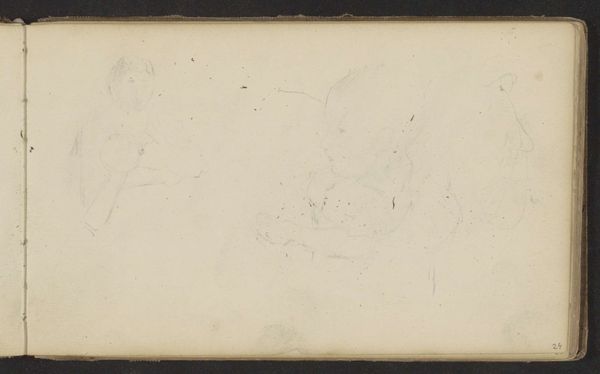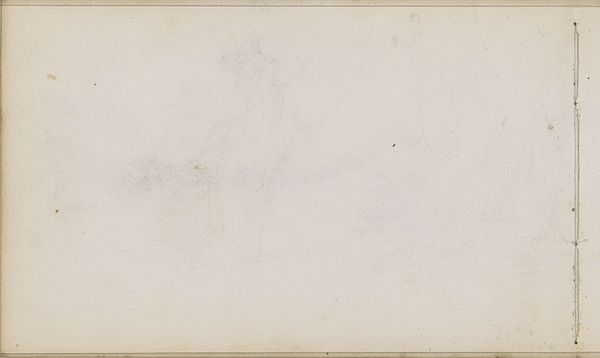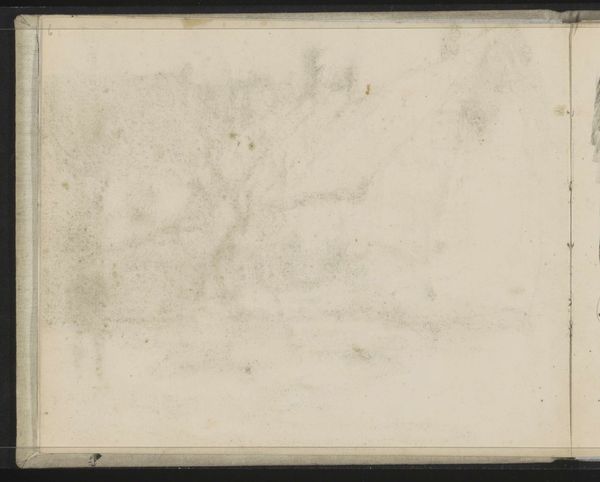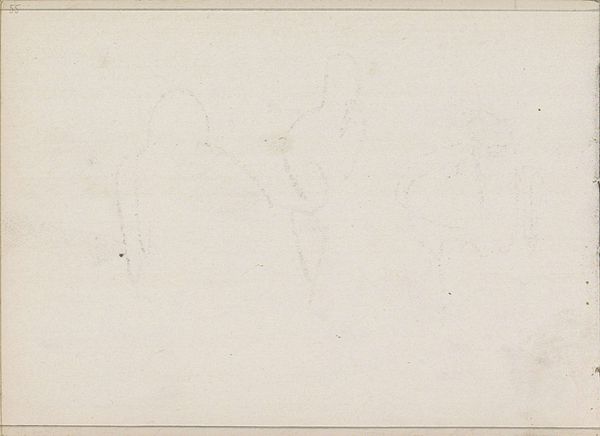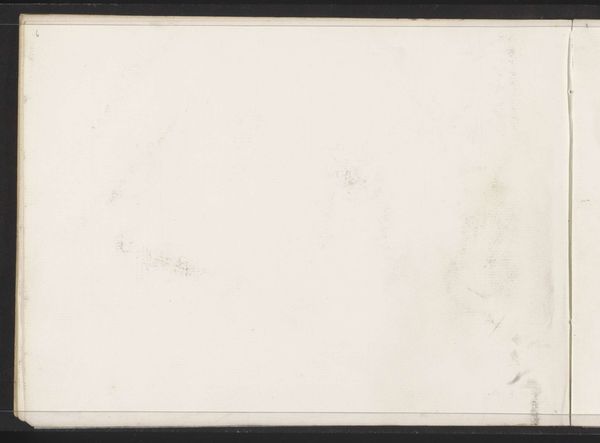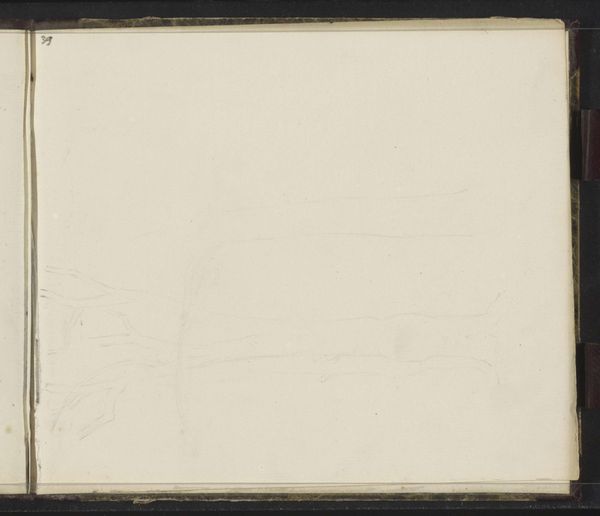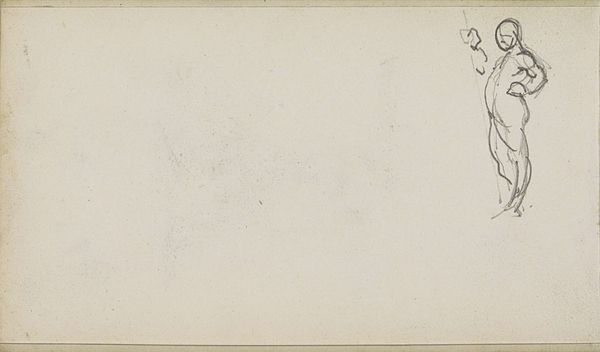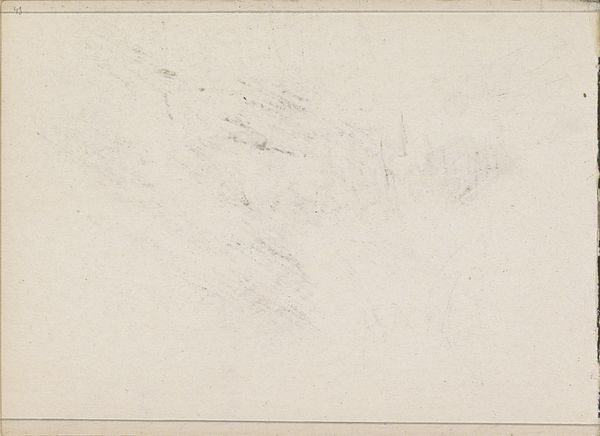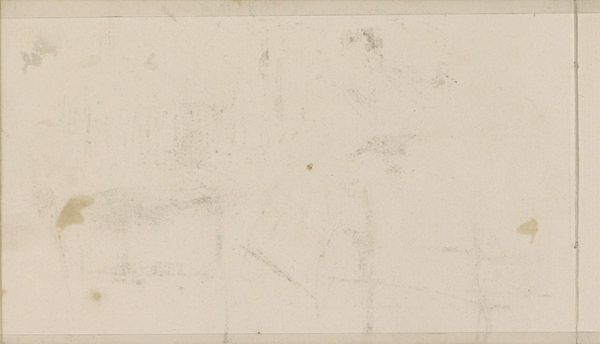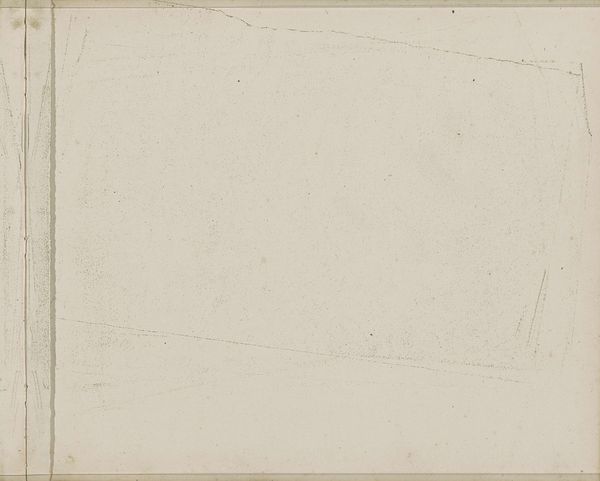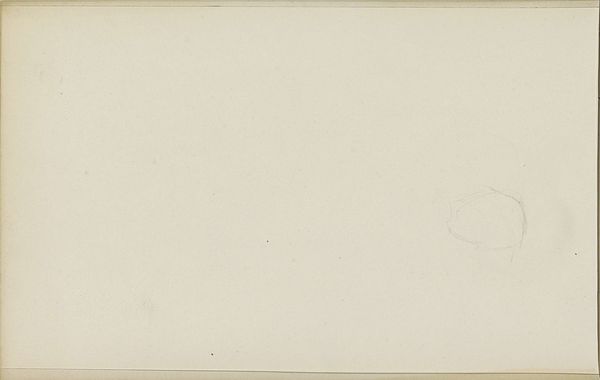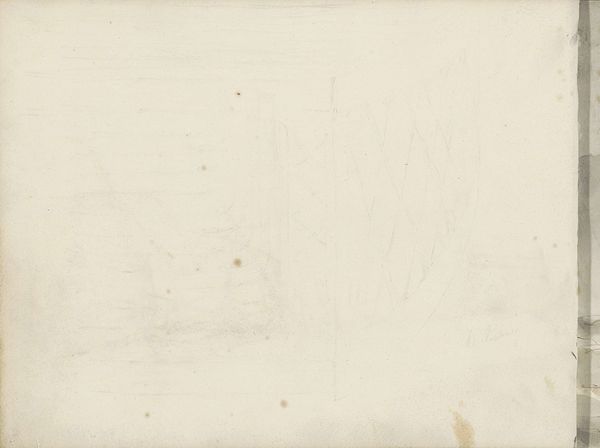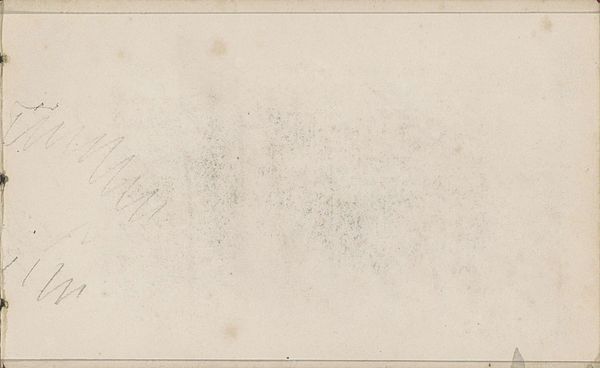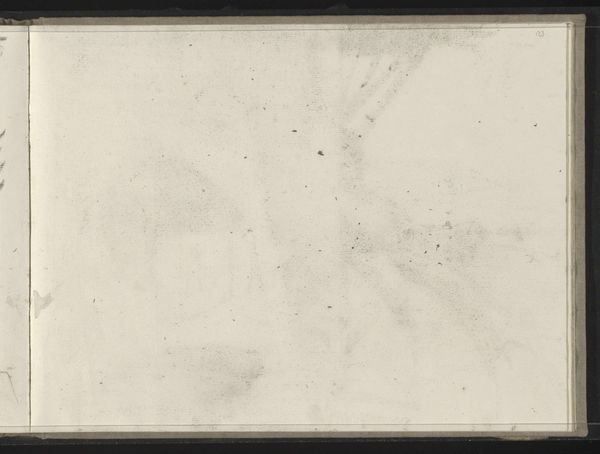
drawing, pencil
#
portrait
#
drawing
#
amateur sketch
#
aged paper
#
light pencil work
#
homemade paper
#
sketch book
#
incomplete sketchy
#
hand drawn type
#
personal sketchbook
#
pencil
#
sketchbook drawing
#
sketchbook art
#
realism
Copyright: Rijks Museum: Open Domain
Curator: Looking at this delicate image, "Abklatsch van een krijttekening" created circa 1904-1912 by Ferdinand Oldewelt, we see a faint pencil drawing on what looks like aged paper, extracted from a sketchbook. Editor: It has a very ghostly quality. The almost vanished figure feels quite haunting and invites a narrative of loss and remembrance. It’s so light, as if a memory almost erased. Curator: Indeed. The medium, a light pencil work, immediately brings questions about the accessibility of art making and whether this incomplete drawing was personal for the artist or one he might have shared publicly. What narrative were marginalized figures allowed to take part in? Editor: Absolutely. And considering the socio-political atmosphere, were people allowed to sketch and develop work that directly spoke to identity or personal desires? There may be power in something hidden and fleeting like this; in not being directly confronted, the artist may have been working outside institutional views of the public eye. Curator: We can't forget to consider that art wasn’t always created for gallery walls and museum display cases. These types of artworks offer an intimacy of the artistic practice, removed from the traditional expectations. I am curious how the drawing practices relate to how private and personal stories may intersect larger movements within the political climate and the construction of identity. Editor: I agree; it gives an interesting entry point into Oldewelt's social landscape. It invites us to look into the visual and cultural contexts of the time and also reflect on how this sketch might resonate differently with varied audiences now. Curator: I like how the very 'incomplete sketchy' and private nature of the piece is almost amplified in the viewer’s experience of discovery in the museum. Editor: It offers such a beautiful reflection of individual experience against larger public narratives of personhood during its time.
Comments
No comments
Be the first to comment and join the conversation on the ultimate creative platform.
